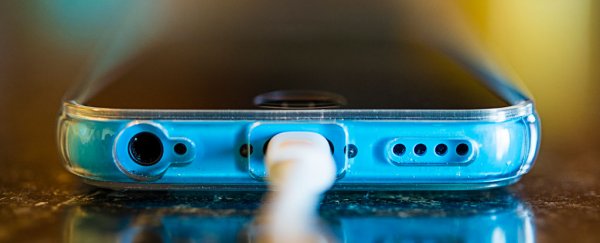Let's face it. Smartphone battery life tends to suck a bit. Depending on what kind of phone you have you it may suck a bit more or a bit less, but it's never exactly great.
Daily charging is the reality that most of us have to contend with, and while there are all kinds of hugely promising battery innovations on the horizon involving things like hydrogen, aluminium, and solar power sources, most of them won't help users with devices running on current-generation lithium-ion batteries. Short of following our tips on how to make the most of your battery life, is there anything you can you do to squeeze a little extra juice out of your smartphone? Yes.
Researchers at Purdue University in the US have developed a new tool for Android users that cuts down on battery drain by suppressing apps running in the background.
In conjunction with Intel and Indiana-based battery startup Mobile Enerlytics, the researchers studied the use of 2,000 Samsung Galaxy S3 and S4 smartphones across 191 mobile carriers in 61 countries.
"This was the first large-scale study of smartphone energy drain 'in the wild,' or in everyday use by consumers," said Y. Charlie Hu, a professor of electrical and computer engineering, in a press release.
The team found that 45.9 percent of daily battery drain occurs when our smartphone screens are off. More than half of this – 28.9 percent of battery drain – is due to apps that frequently wake up and run in the background of your device.
While a lot of these apps are important to the operation of your phone and ensuring its communications systems are running, not all of them are. According to the researchers, a fair chunk of battery drain is actually caused by bugs and inefficiencies due to insomniac-style apps that wake up and simply can't go back to sleep when it's their rightful bedtime.
"During screen-off, the phone hardware should enter the sleep state, draining close to zero power," Hu said. "Apps wake the phone up periodically during screen-off to do useful things, but then afterward, they should let the phone go back to sleep. They are not letting the phone go back to sleep because of software bugs and, specifically, due to the incorrect use of Android power control application programming interfaces called wakelocks."
In a paper presented at the Association for Computing Machinery MobiCom 2015 conference in Paris this month, the researchers detailed their code-based solution to the problem, called HUSH. It works by identifying which apps are important for the specific user, depending on their regular activity, and suppresses the operation of deemed unimportant apps. According to the researchers, the HUSH system can reduce overall battery drain by as much as 15.7 percent.
Best of all, the researchers have made HUSH available for free on GitHub. It hasn't been packaged in app form yet, which means you'll need to know how to compile the code yourself in order to use it. Luckily, they plan on doing just this soon, so it won't be long before all Android users can eke out a little bit of extra battery life with their smartphones. Every little bit helps, right?
